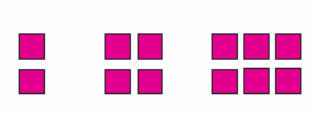
Complete the next two terms for the growing pattern. What is the rule?
teacher check - the rule is add two
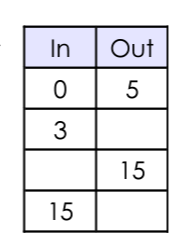
Based on the given row, what could the rule for this table be? What are the missing numbers?
The rule is add 5. The next blanks are 8 (3+5), 10 (10+5=15), 20 (15+5=20)
Which is a prime number?
2, 8, 30, 99
2 is a prime number - the factors are 2 and 1
Amy is thinking of a composite number that also has a factor of 9.
What could be his number?
2, 54, 4, 36
54 because 9 x 6 = 54
AND 36 because 9 x 4 =36
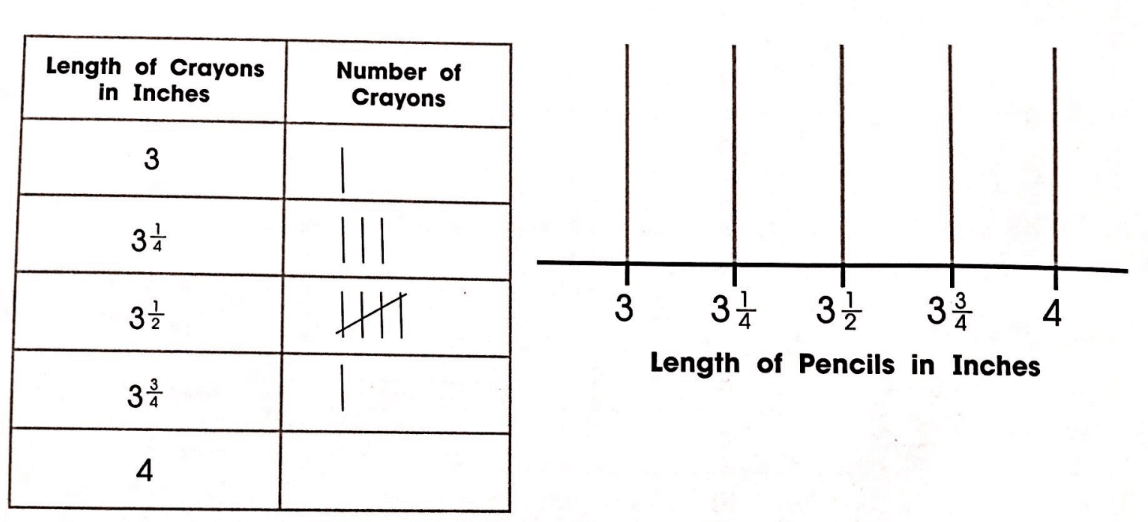

3 1/2
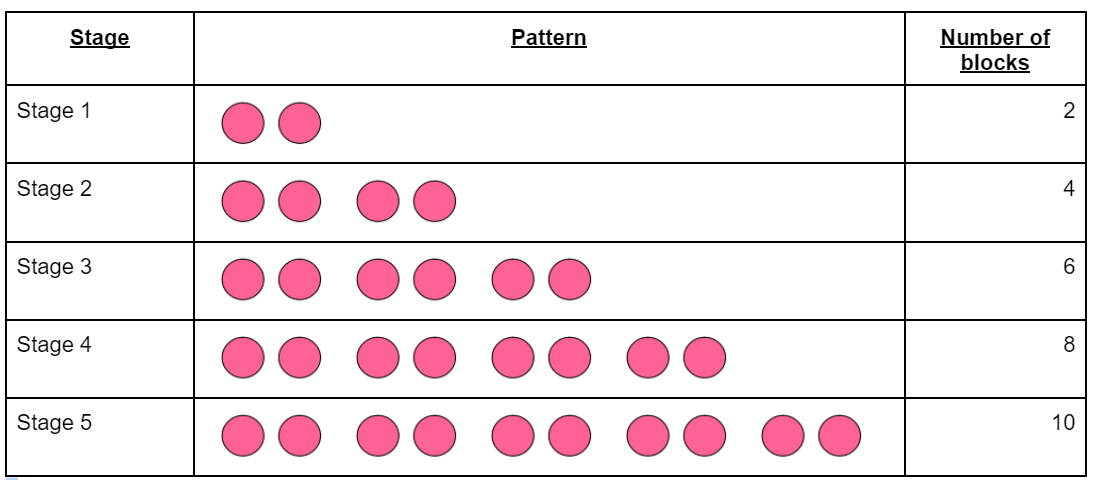
Based on the pattern created, what would the next stage look like? How many dots would there be?
Teacher check drawing - there would be 12 dots
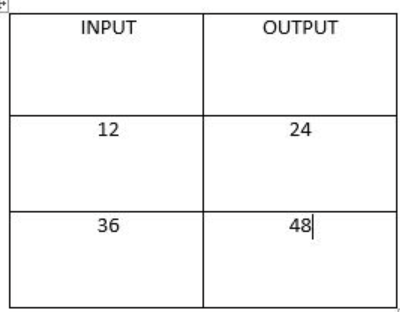
What is the rule of the input/output table?
The rule is add 12
Shaun was answering a question in math class about prime and composite numbers. He listed 97 as composite. Is he correct? Why or why not?
He is incorrect. 97 is prime. The factor are 1 and 97
Andrew was answering a question in math class about prime and composite numbers. He listed 33 as prime. Is he correct? Why or why not?
He is wrong. 33 is composite because:
1, 3, 11, 33
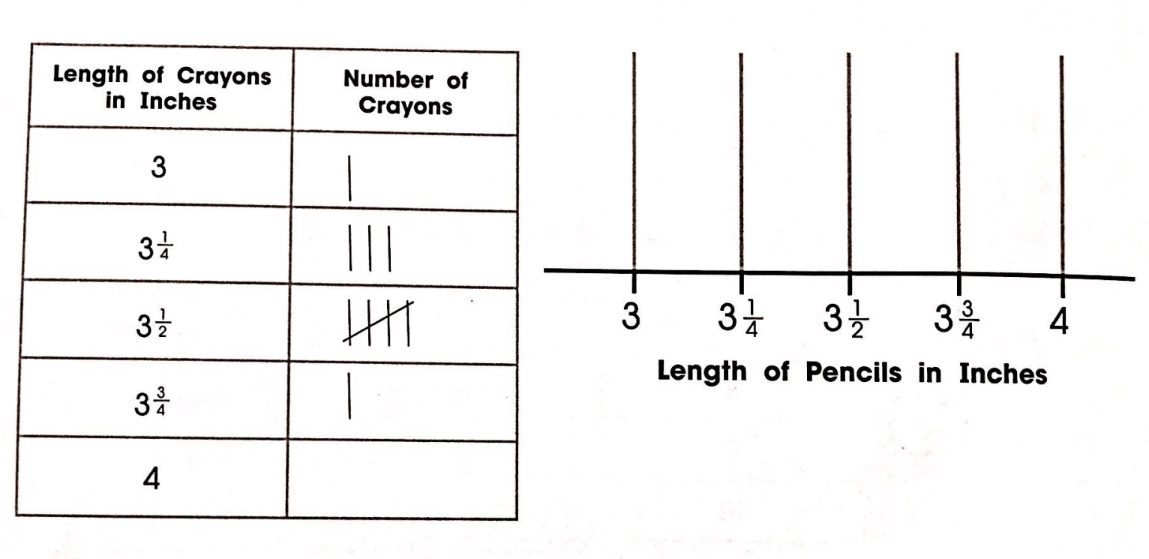
Sam measured the length of his crayons. The table shows his data. If you were to fill in his graph as a dot plot, how many dots would 3 1/4 have?
3 1/4 would have three dots
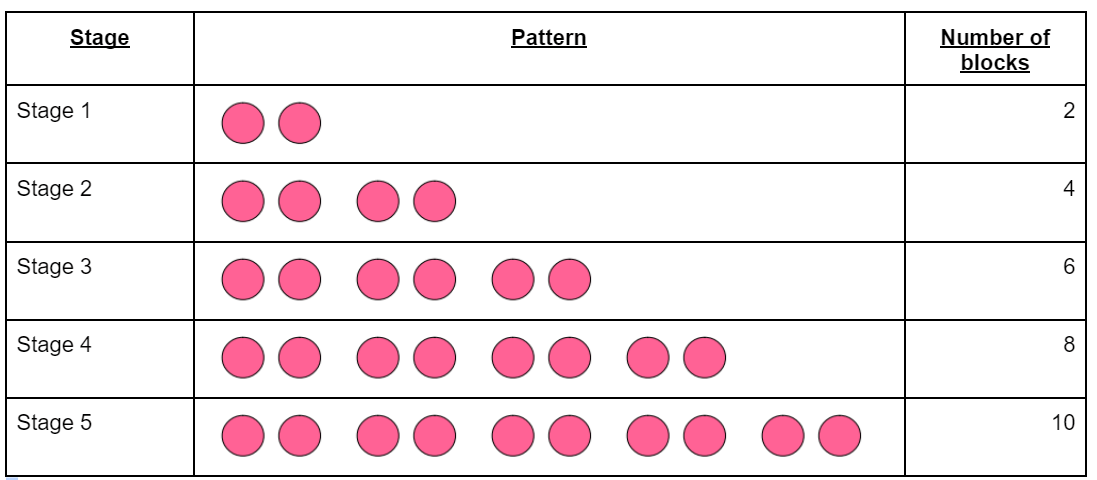
How many blocks would be needed to complete stage 8?
she would need 16 dots
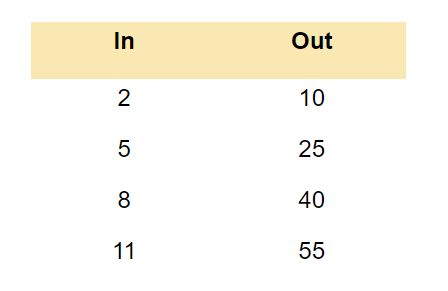
Look at the table above. What is the rule?
The rule is multiply by 5
Which is a prime number?
51, 18, 9, 89
89
the factors for 89 are 1 and 89
Emily is thinking of a number that also has a factor of 8.
What could be her number?
3, 6, 17, 48
48 because 8 x 6 = 48
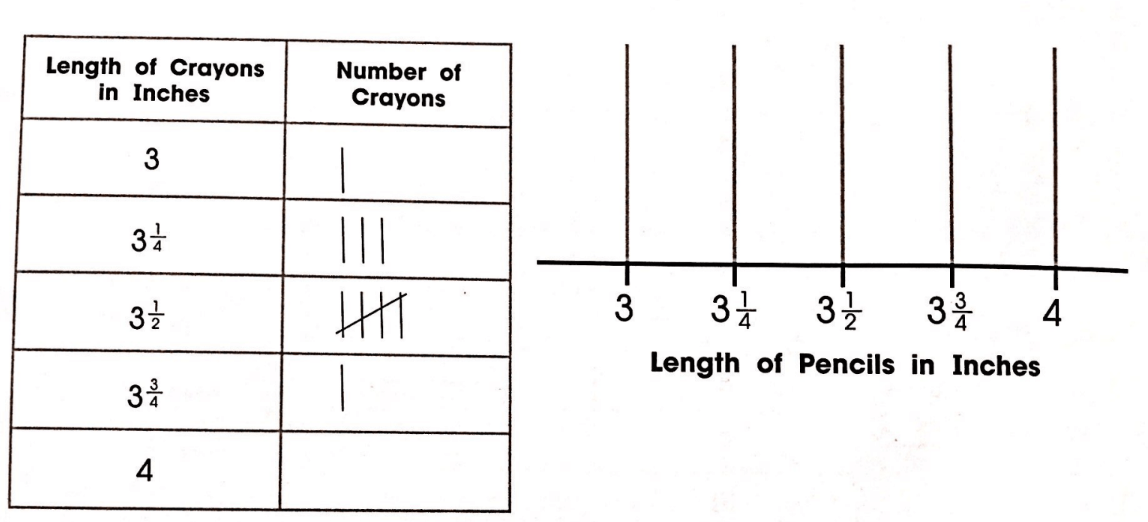

9 crayons were more than 3 inches in length
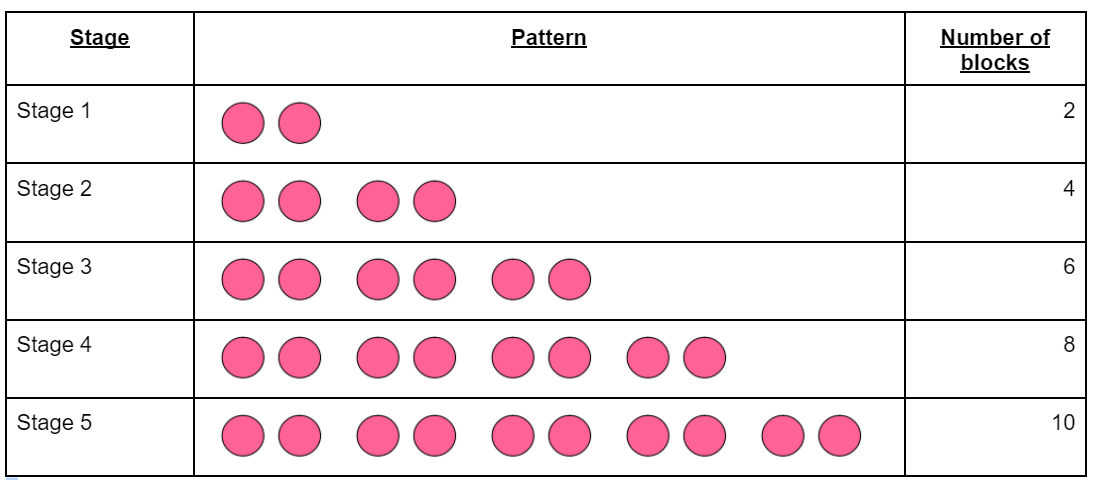
Based on the table created, can the number of blocks ever be prime? If so what numbers?
All of the numbers will be composite EXCEPT for 2. Two will be the only prime number because the factors for two are 1 and 2 and that is all.
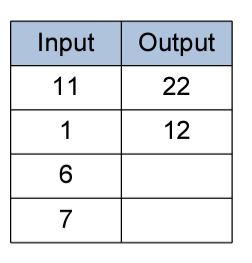
For the table above, figure out the rule. What two numbers complete the blanks?
The rule is add 11. 17 (6 + 11) and 18 (7 + 11) complete the next two blanks
Whitney was answering a question in math class about prime and composite numbers. She listed 61 as composite. Is she correct? Why or why not?
She is incorrect. 61 is prime. The factors are 1 and 61
Jim is thinking of a composite number that also has a factor of 4.
What could be his number?
3, 7, 12, 35
12 because 3 x 4 = 12
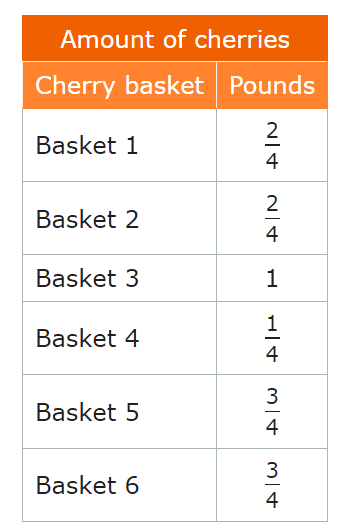
Use the data in the chart to create a line plot
teacher check

Based on the rule for the pattern above, what would the tenth stage look like?
teacher check - the pattern would have 20 blocks
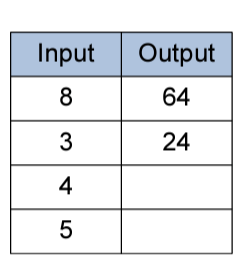
For the table, determine the rule and fill in the next two blanks
The rule is multiply by 8. The next two blanks would be 32 (4 x 8) and 40 (5 x 8)
Is the number prime?
1
1 is neither - because it has only 1 factor
Mia was answering a question in math class about prime and composite numbers. She listed 82 as prime. Is she correct? Why or why not?
She is incorrect. 82 is composite. The factors are:
1, 2, 41, and 82
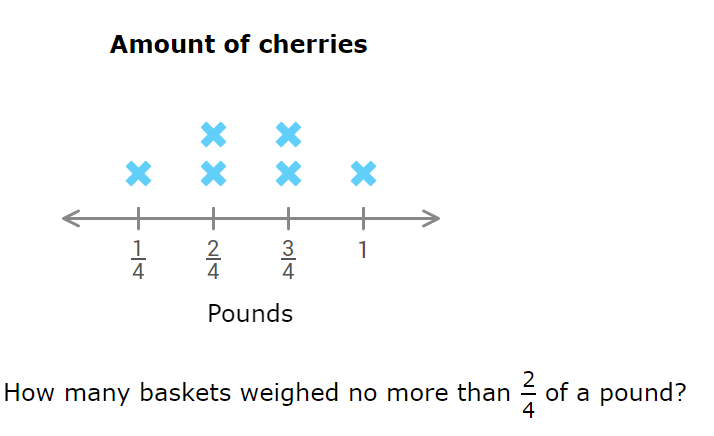
3 baskets